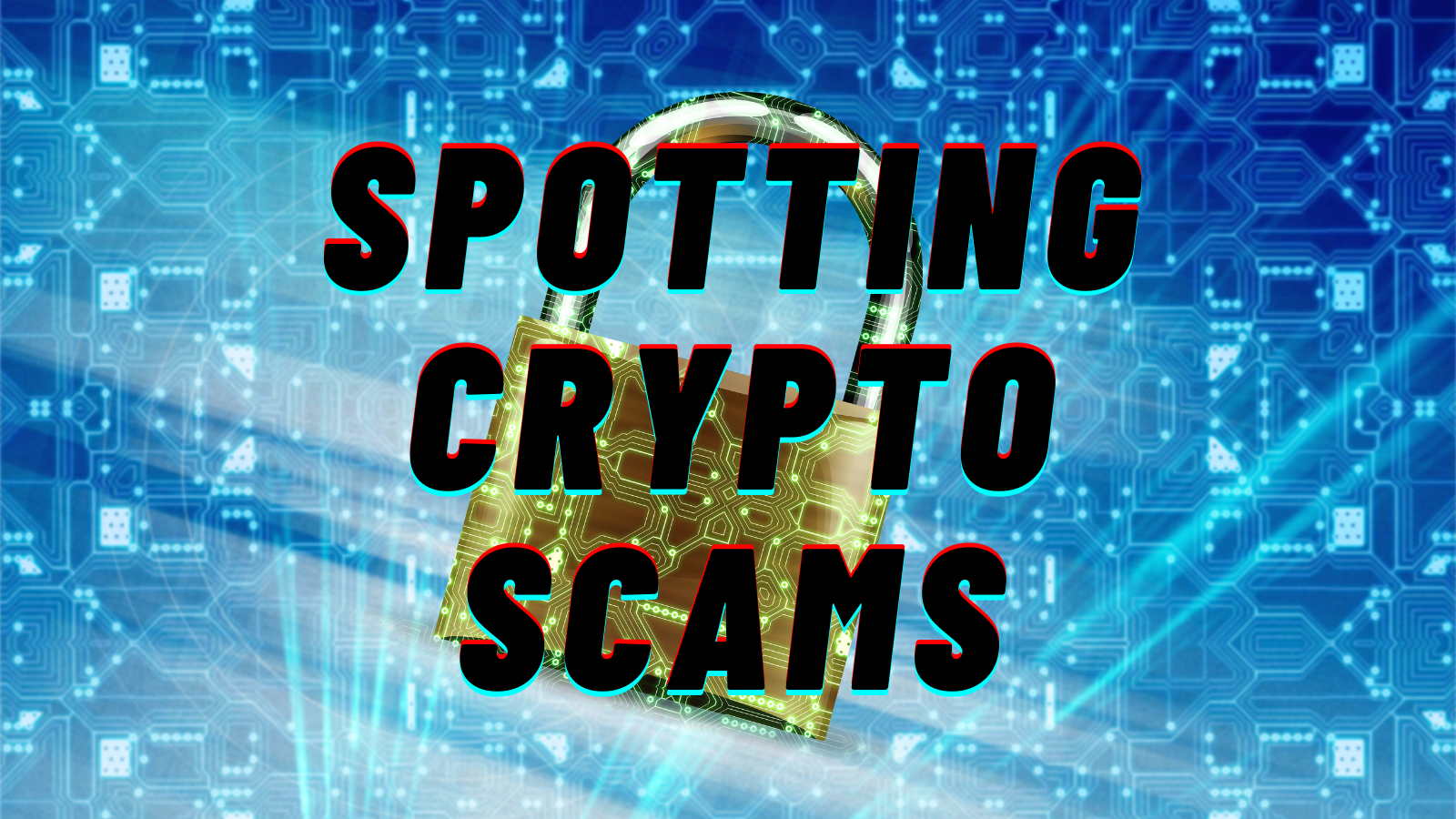Spotting Crypto Scams

If you are or want to be involved in any sort of financial world, especially crypto, you need to be vigilant.
If you are a crypto veteran, you will probably know or at least would have heard of some of these. But it’s always best to go through it, there may be something new to you.
Malware Scams / Clipboarding

We’ve all heard the term “malware” surely, it’s a prevalence of the internet space. However, with cryptocurrency being digital money in it’s basic form, there are always those that will target them specifically.
Malware scams target either a user’s browser directly and attempt to phish them (use a fake website to grab a user’s login details), or by installing a piece of software directly onto the user’s device to simply detect when a cryptocurrency address is being copied (usually for withdrawing from an exchange to the user’s own wallet). One software that worked this way was called a Clipboard Hijacker, it will replace the user’s intended withdrawal address for example, with their own and thus stealing their crypto.
Bottom line should be: Double check what you are downloading!
ICO Scams

These were pretty popular back in 2018, however some still exist today.
How these usually work is by having investors buy a “coin” or “token” early to raise capital for a project. The ICO offers the new coin or token at a lower rate than what it should get after the official release of the project.
However, the scammy ones will just quite simply offer a project, as there is no regulatory intermediary, and take an investors funds without ever having the intent on going ahead with the project. Think of the projects posted on Kickstarter or IndieGogo where the products promised were never delivered.
This being said not all ICOs are bad or scams, but it’s up to the investor to do their due diligence and research. Remember whitepapers are crucial to research.
Pump and Dump Scams

Pump-and-dump scams are everywhere, especially online, from ERC and TRC tokens and even full cryptocurrencies.
Though these were a thing long before the internet was a thing even, way back when stock markets were still the primary trading platforms.
There are two main ways this type of scam works, by hyping the hell out of the coin or token (usually with multiple Twitter and social media accounts) getting a load of people to buy the coin or token, while these “hypers” already have quite a few bags of them already then sell it off all at once, together. This is usually coordinated which leads us to the second main method, Groups.
Sometimes you will find Telegram groups which will do pretty much the same as earlier and hype up a coin, however this time they are all conspiring to pump a coin (usually with a low cap and volume) and pump it up until a set date and time where they will dump it.
However, sometimes the admins that run these groups will dump prematurely with an already large amount bagged up, to capitalize on the faked pump they generated.
Fake Mining Sites and Ponzi Scams

You may have stumbled across some ads promising to double your bitcoin or cloud mining sites that ensure a 3% return daily, or something ridiculously similar.
(I just want to point out, this is the kind of scam I was tricked by and is very very easy to get tricked into if you are new or unsure of what to be looking out for.)
The way this works is pretty simple too, you send your Bitcoin, or other crypto that the site promises to give a return on, and before you know it, the site is gone, along with your coins.
These usually have no phone number and are regularly “based in the UK”. This is because it is rather easy to buy a company name and business location to make it look pretty legitimate, but looking at the address these sites usually give, the building it is located in (supposedly) has 300+ businesses running out of it.
It always goes back to doing research before investing. (kind of the running theme of this article)
Now, I am not giving a bad name to legitimate cloud mining sites out there as there are quite a few that have been around for a very long time. Bitcoin is over 10 years old after all.
Conclusion
This list is in NO WAY concise, there are plenty of ways to be duped of your coins, tokens or investments. Just keep a keen eye out and as a general rule of thumb, if it’s too good to be true, it probably is.
Tip: Don’t invest what you can’t afford to lose.
Doing your own research doesn’t hurt either.
Some more reading:
https://cryptonews.com/guides/what-is-an-ico.htm
https://news.bitcoin.com/bittrex-issues-warning-cryptocurrency-pump-dumps/




Thanks for the sponsorship 😊😊 Btw, I joined forsage before but it turned out to be a scam..although I know the risk, s encouraged by my friend to join was just lucky to gain back the money I have invested, at least, I didn't lose anything even got triple from the money I have invested.. And good thing I didn't invite anyone to join, or else I would be guilty of them. It was my first time to invest in crypto platform